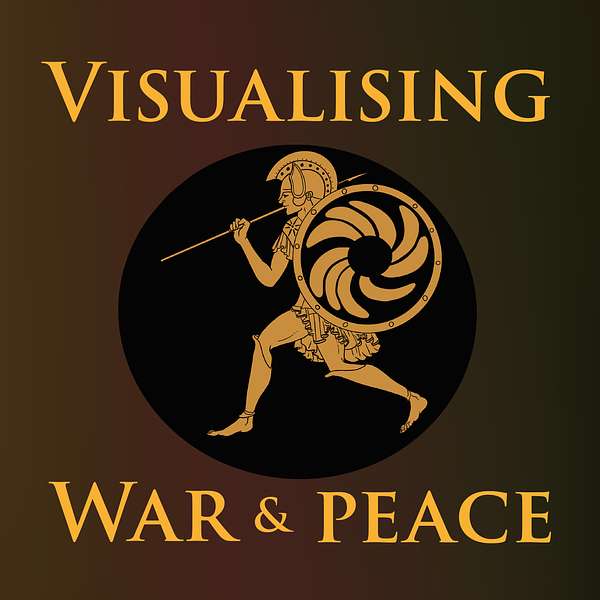
Visualising War and Peace
How do war stories work? And what do they do to us? Join University of St Andrews historian Alice König and colleagues as they explore how war and peace get presented in art, text, film and music. With the help of expert guests, they unpick conflict stories from all sorts of different periods and places. And they ask how the tales we tell and the pictures we paint of peace and war influence us as individuals and shape the societies we live in.
Visualising War and Peace
Visualising a Sustainable Future through Gaming with Mark Wong
Use Left/Right to seek, Home/End to jump to start or end. Hold shift to jump forward or backward.
In this episode, Visualising Peace student Madighan Ryan interviews Dr. Mark Wong, a Senior Lecturer in Public Policy and Research Methods, and the Deputy Head of Urban Studies, at the University of Glasgow. Dr. Wong has extensive expertise in the fields of responsible AI and the Just Transition, and has been an advisor in this capacity to the Scottish Government and Public Health Scotland, amongst other institutions. He is also the principal investigator of the interdisciplinary Innovator’s Assemble Project at the University of Glasgow, which produced the subject of this podcast: SEvEN: Seven voices, One Future, a videogame aimed at building an environmentally sustainable future for Scotland by highlighting Minoritized Ethnic people’s voices and the importance of Traditional Ecological Knowledge. SEvEN was recently nominated in the Spirit of Scotland Category for the Scottish Games Awards.
This episode draws on Madighan Ryan's research into the synergies between environmental sustainability and peace. She is looking at everything from the importance of inner peace in remaining resilient as a member of the climate movement, to the necessity of a healthy environment in lowering risk of scarcity and geopolitical conflict. Her aim is to emphasize that peacebuilding and environmental action are not two separate entities but intimately connected. Madighan is particularly keen to draw on conversations with the wider Visualising Peace team about the importance of involving traditionally marginalised groups and minoritised voices in conversations that connect climate and peacebuilding, and it was for this reason that she invited Dr Wong to share his innovate gaming project with listeners.
In the first part of the podcast, Dr. Wong establishes the inseparability of peace and sustainability. Not only is mitigating and adapting to climate change necessary for a peaceful future, Dr. Wong emphasises that a peaceful future will only be possible if the voices of minoritised ethnic peoples are centred in conversations surrounding a just transition towards an environmentally and socially sustainable future. The rest of the podcast is a deep dive into the details of SEvEN. Dr. Wong speaks on everything from design choices, to the real-life impact of SEvEN, to the effectiveness of video games as a tool to visualise peace.
As Dr. Wong paints a picture of SEvEN, it becomes evident that this video game is a means of visualising peace in two different and interconnected capacities. First, the game helps players visualise peace and sustainability as a process that should centre minoritised ethnic peoples’ voices and traditional knowledge. Players learn the importance of listening and of supporting this type of knowledge. Second, the process itself of co-designing the video game with different industry partners in a collaborative manner does so much to teach the designers and to bolster community involvement. The way in which SEvEN was produced is itself an example of peacebuilding.
Please enjoy this episode as we immerse ourselves into the sustainable world of SEvEN and explore gaming as a means of visualising peace! For a version of our podcast with close captions, please use this link. For more information about individuals and their projects, please visit the University of St Andrews' Visualising War website and the Visualising Peace Project.
Music composed by Jonathan Young
Sound mixing by Madighan Ryan